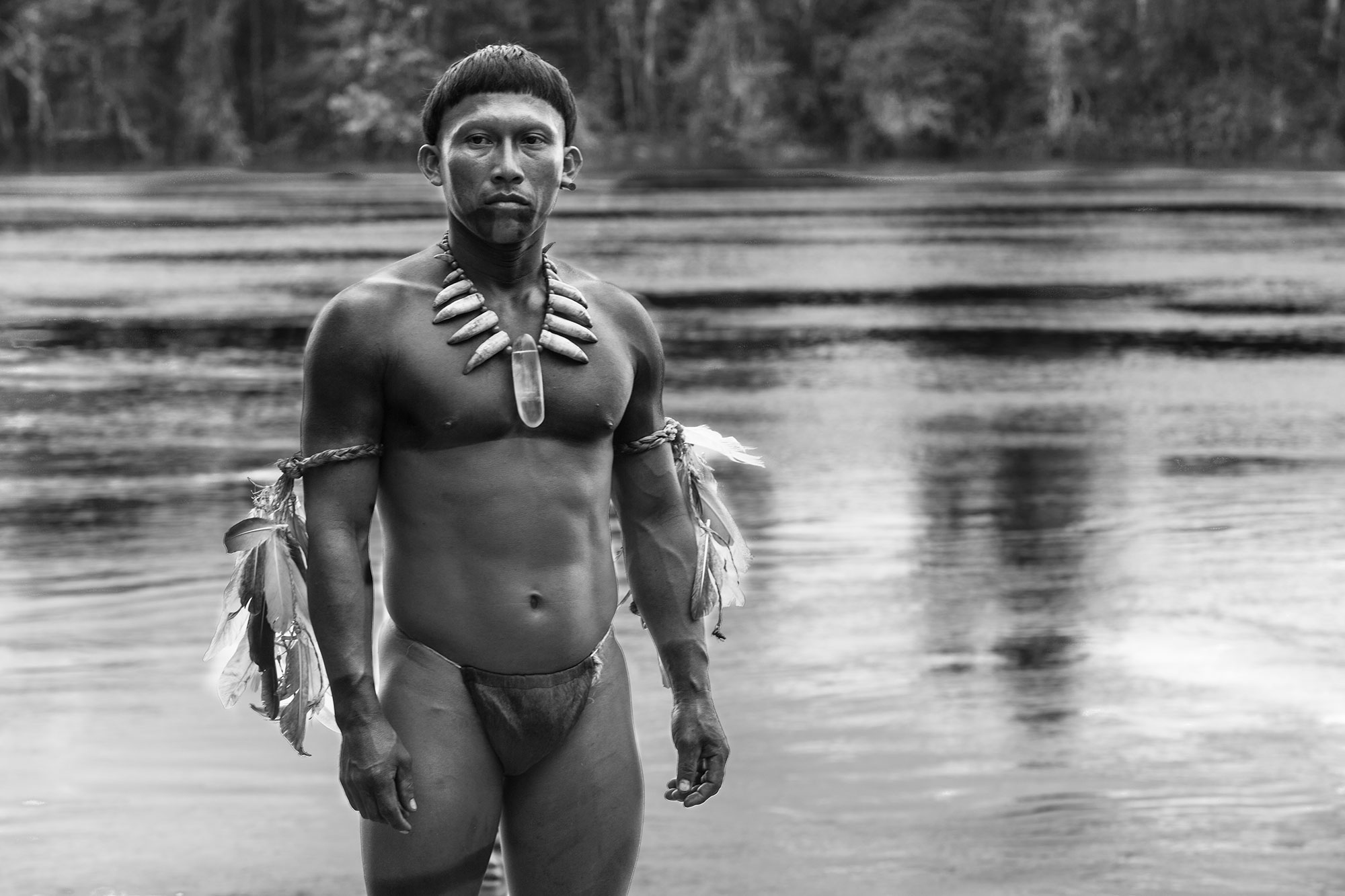Chosen by the Colombian curator José Roca, Embrace of the Serpent (2015) is an Oscar nominated film that bears witness to the effects of colonialism, religion and the exploitation of rubber on indigenous traditions and the environment with which they are inextricably linked.
In May this year, on the opening weekend of Groundwork, José Roca, gave a powerful talk about the work of Abel Rodriguez (Mogaje Guihu), in which he referred to the compelling beauty of this film, set in the Colombian Amazon. Invited to contribute from afar to the Artist’s Choice screening series, he has kindly provided the following brief introduction:
Ciro Guerra’s Embrace of the Serpent is a fascinating interweaving of two stories: that of a turn-of-the-century German explorer (loosely based on Theodor Koch-Grünberg) and of Richard Evans Schultes, the noted Harvard professor – considered the father of ethnobotany and a specialist in hallucinogenic plants – both of whom visited the Amazon, one at the beginning of the twentieth century and the other three decades later. But other temporalities are alluded to in the film: teleological Western time, and the circular, mythical time of the indigenous populations. The two stories are linked by the character of Karamakate, the last survivor of a tribe decimated by the rubber trade, who is also a shaman with knowledge of the sacred plants that can heal both men, physically or spiritually. The plot goes back and forth in a voyage of discovery that culminates in a more profound journey, the Yagé-induced journey within. As Guerra stated in an interview, ‘When you use yagé, the serpent descends again from the Milky Way and embraces you. That embrace takes you to faraway places; to the beginning where life doesn’t even exist; to a place where you can see the world in a different way.’
José Roca is Director of FLORA ars+natura, a not-for-profit space for contemporary art in Bogotá, Colombia, that specialises in relationships between art and nature. FLORA focuses on production: through commissions and residencies; the circulation of the results of these activities; and education.
The public programme at CAST is currently supported from funds awarded by Arts Council England for the Groundwork programme.
